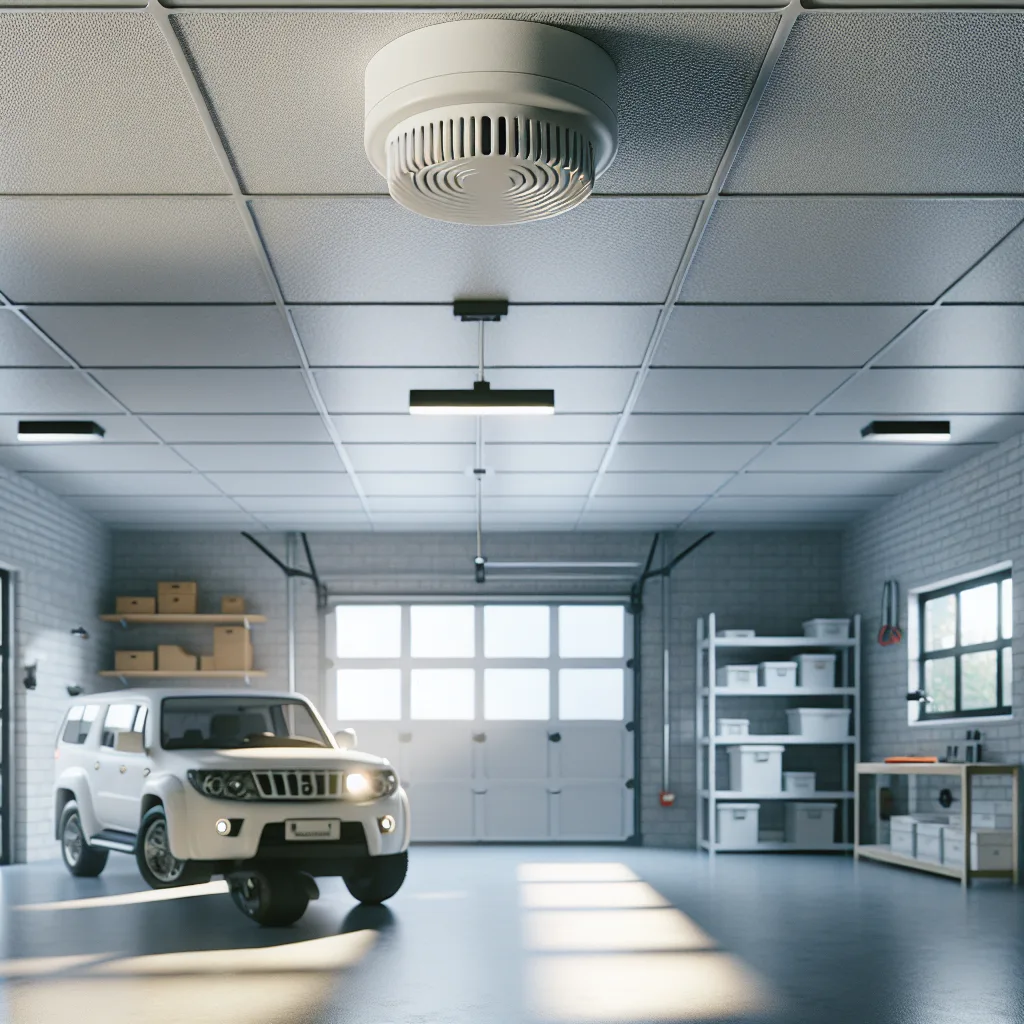Wondering if you need a fire detector in your garage? Learn why a heat detector is a better choice than a smoke detector and explore your options.
I was cleaning out my garage the other day, and it hit me just how much flammable stuff is in there. Between the lawnmower’s gas can, leftover paint thinners, and oily rags I probably shouldn’t have kept, it’s a bit of a fire hazard.
That got me thinking. I have smoke detectors all over my house, but what about the garage? It’s probably the one place where a fire is most likely to start.
So, I started looking into it. My first thought was to just stick a regular smoke detector on the ceiling and call it a day. But it turns out, that’s not the best idea.
Why a Regular Smoke Detector Isn’t Great for a Garage
Your garage is a dusty, dirty place. Car exhaust, sawdust from a project, and even big temperature swings can trigger false alarms with a standard smoke detector. Imagine your alarm going off every time you start your car on a cold morning. No, thank you.
That’s when I stumbled upon heat detectors.
They work differently. Instead of “sniffing” the air for smoke particles, heat detectors do exactly what the name suggests: they detect a rapid rise in temperature. They don’t care about dust or fumes. They only care about heat. This makes them perfect for places like garages, workshops, or attics.
A heat detector won’t go off because of a little exhaust smoke. But it will go off if a fire starts and the temperature suddenly skyrockets. Fewer false alarms, but you still get the protection you need.
So, What Are the Options?
Once I decided a heat detector was the way to go, I had to figure out which one to get. There are a few different paths you can take.
1. The Simple, Standalone Detector
This is the easiest option. You can buy a battery-powered heat detector from most big-box hardware stores. You just screw it to the ceiling, and you’re done. It has its own loud alarm, just like a smoke detector.
* Pros: Cheap, easy to install, no wiring needed.
* Cons: It only alerts you if you’re home and can hear it. If you’re away, you won’t know there’s a problem.
2. The Interconnected System
If you have a modern, hardwired smoke detector system in your house, you can often add a compatible heat detector to it. When the heat detector in the garage goes off, all the alarms in your house will sound.
* Pros: Whole-house alert system. More reliable since it’s hardwired (with battery backup).
* Cons: More complex to install. You might need an electrician, and you have to find a model that works with your existing system.
3. The Smart Home Route (Z-Wave, Zigbee, etc.)
This is where things get interesting for smart home fans. I started looking for a Z-Wave heat detector, thinking I could connect it to my smart home hub. That way, I’d get an alert on my phone no matter where I am.
The options for dedicated Z-Wave heat detectors are surprisingly thin. But I found a clever workaround that many people use:
You can get a “listening” device or a sensor that is designed to detect the specific sound frequency of a standard alarm. For example, you can place a Z-Wave smoke/CO “listener” near a basic, standalone heat detector. If the heat alarm goes off, the listener hears it and triggers your smart home automations—sending a notification to your phone, flashing your lights, you name it.
There are also some smoke detectors with built-in heat sensors that are designed to be less prone to false alarms from dust and bugs, and these often come in smart versions. While not a pure “heat detector,” they’re a solid smart-home-friendly option for the garage.
* Pros: Get alerts on your phone, integrate with other smart devices, peace of mind when you’re away.
* Cons: Can be more expensive and require a bit of tech-savviness to set up.
What Did I End Up Doing?
For now, I’m leaning toward the interconnected route, as my system is due for an upgrade anyway. But that smart home listener idea is really compelling. The thought of getting an alert on my phone if something happens while I’m out is a huge plus.
Ultimately, doing something is better than doing nothing. The garage is often overlooked, but it’s a critical spot to monitor. A simple heat detector is a small investment for a whole lot of peace of mind.
So, take a look at your garage. If it’s anything like mine, it might be time to think about adding that extra layer of safety.
